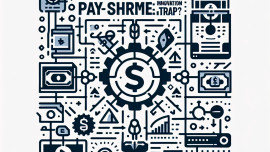
Does Financial Justice Exist? Analysing the UK’s Consumer Redress System
Why You Should Care About the CFPB (Even If You Think You Shouldn’t)
Financial acronyms can make anyone’s eyes glaze over. CFPB? Sounds like a stock ticker or one of those secret government agencies that only show up in spy films. But hold tight, dear reader, because the Consumer Financial Protection Bureau (CFPB) is not only real—it’s doing the heavy lifting in your financial life, even if you’ve never heard of it.
I’m Eleanor “Ellie” Cartwright, and while I might not wear a cape, I’m here to shine a light on policies, agencies, and financial mechanisms that impact us every single day. If you’re feeling skeptical—good. Healthy skepticism is the bedrock of smart financial choices. Now, let’s unpack why you should care, and how the CFPB might be the best financial advocate you’ve never met.
The Birth of a Bureau (A Bureaucratically Beautiful Beginning)
The CFPB was born out of the 2008 financial crisis—yes, that whole mortgage meltdown mess that gave us recession nightmares and housing horror stories. Established under the Dodd-Frank Wall Street Reform and Consumer Protection Act in 2010, the CFPB was designed with a simple yet bold mission: to protect consumers from abusive financial practices.
Mortgage companies, credit card lenders, debt collectors—before the CFPB, there wasn’t a centralized federal agency focused purely on ensuring these industries weren’t acting like financial predators in three-piece suits. The CFPB changed all of that.
What Does the CFPB Actually Do?
Let’s break this down, because bureaucratic language has a bad habit of turning critical responsibilities into dry toast. At its core, the CFPB:
- Monitors and regulates mortgages, credit cards, student loans, and payday lending.
- Enforces consumer protection laws to prevent fraud and discrimination.
- Provides financial education and tools to the public.
- Handles consumer complaints and holds financial institutions accountable.
In practical terms? That might mean the CFPB stops a bank from tacking on hidden fees, investigates discriminatory lending practices, or makes it easier for you to compare student loan options. Sound boring? Maybe. But also life-changing.
How the CFPB Has Saved (And Returned) Billions
Let’s talk numbers. Since its inception, the CFPB has:
- Returned over $15 billion to consumers in refunds, canceled debts, and other forms of relief.
- Handled more than 4 million consumer complaints.
- Filed hundreds of enforcement actions against banks, lenders, and collectors gone rogue.
Translation: the CFPB is doing more than just shuffling papers. It’s out there fighting the good fight. And yes, I realize “bureaucratic knight in shining armor” isn’t a sexy tagline—but results matter. Whether it’s recovering wrongful overdraft fees or taking on shady debt collectors, the Bureau is showing up for consumers.
Quick Case Study: Wells Fargo
Remember when Wells Fargo created millions of unauthorized bank accounts for customers? CFPB was there. They fined the bank $3 billion and required restitution to impacted customers. It’s like the financial equivalent of “that’s not how consent works.”
Why Some People Want to Silence the CFPB
Not everyone is thrilled about the CFPB’s consumer-first activism. Big banks and certain lawmakers have argued that it’s too powerful, unaccountable, or heavy-handed. And to be fair, oversight and transparency are critical for any federal agency. But the arguments against the CFPB often come from industries that, well, don’t like being told “no.”
We’re talking about entities that made their fortunes through questionable fees, exploitative loans, and consumer confusion.
Ask yourself this: If someone is lobbying hard to shut down a watchdog, do they care about your interests—or their bottom line?
How the CFPB Impacts YOU (Yes, You)
Even if you don’t think you’re the “policy type,” the CFPB affects your financial life more than you know. Here’s how:
- Shopping for a mortgage? The CFPB sets clear disclosure rules.
- Confused about credit scores? They provide free, impartial education tools.
- Received a suspicious debt collection call? The CFPB can investigate and act.
- Accused of identity theft? The CFPB helps guide you through recovery.
They’ve even created sample templates to help you communicate with collectors, lenders and credit reporting agencies more effectively. This isn’t just policy—it’s practical, actionable help for real-life problems.
How to Use the CFPB as Your Financial Ally
Want to make the most of this bureau? Here’s how:
- File a complaint: If you’re wronged by a financial institution, use the CFPB Complaint Portal. It’s fast, free, and often effective.
- Use their tools: Their site offers calculators, guides, and explainers that are jargon-free and unbiased.
- Stay informed: Subscribe to their updates to stay ahead of policy changes or new financial scams.
Final Thoughts: Watchdogs Are Sexy (Yeah, I Said It)
In an economy where corporations too often get away with fine-print fleecing, we need agencies like the CFPB to fight for fairness. They may be nerdy. They may be bureaucratic. But they are among the best defenses we have when it comes to unfair loans, discriminatory practices, and deceptive financial products.
So next time someone rolls their eyes at acronyms or shrugs off “government regulation,” just remember: the CFPB isn’t there to control you—it’s there to protect you. And that, my financially empowered friend, is worth paying attention to.
For more on how finance policies affect you personally, visit our About Us page or reach out via our Contact page. Knowledge is power—and in your wallet, it’s cash.









Leave a Reply